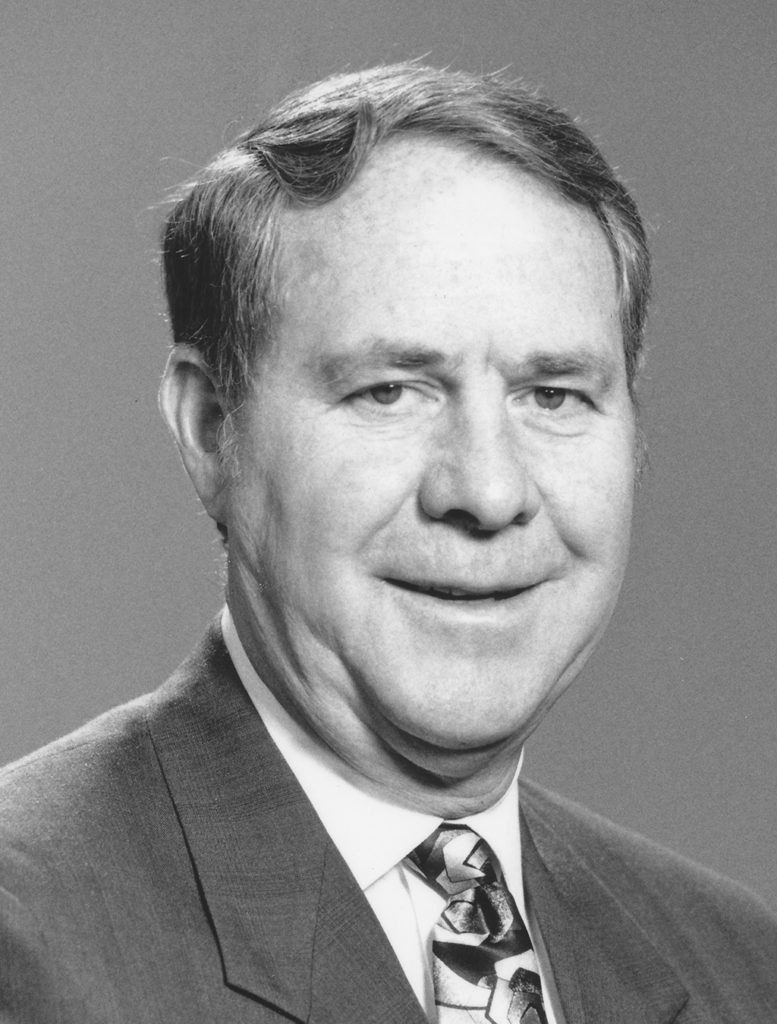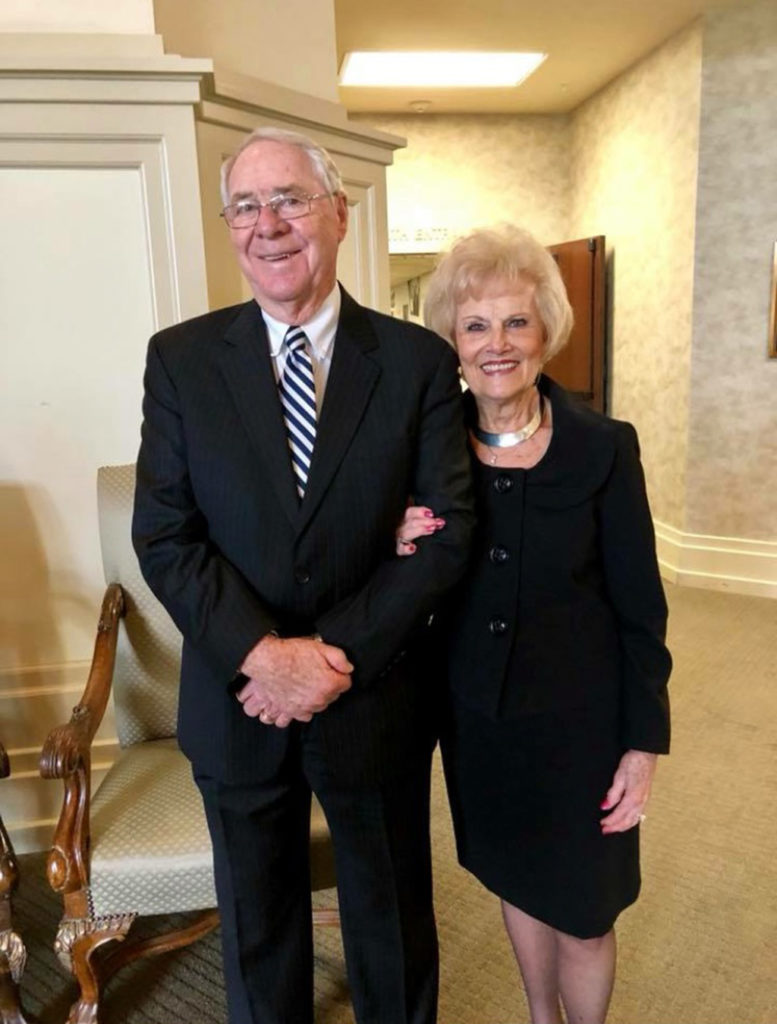In 1992, Orman Simmons received a phone call from the chairman of the denominations committee in Arkansas, asking him to serve on one of three boards across the Southern Baptist Convention, one of which was Southern Seminary.
Simmons told the chairman he would serve on any of the boards except Southern Seminary’s.
He knew about Southern Seminary from afar through his church and his ties with the convention. In short, Simmons refused to serve on the seminary’s board because of his interactions with seminary students. He found members of the student body — and the faculty who taught them — distressing because of liberal theology coming out of the school.
Simmons wasn’t the only Southern Baptist with these concerns. That same year, the seminary’s board elected a new president, who they charged with addressing those very theological problems.
a new investment
After graduating from the University of Arkansas, marrying his wife, Marilyn, and going to medical school, Simmons served in the Army for three years, including a year in the Vietnam War. He returned to Little Rock after the war for residency — the start of a celebrated, 40-year career as an OBGYN.
Early on in his practice, Simmons reconnected with an old friend from medical school who suggested they start a medical clinic together. Their goal involved providing affordable medical care to any woman in their community who needed it.
Simmons said this provided the best opportunity to invest in these women’s lives as the clinic served both as a medical facility and a ministry, which Simmons and his wife valued as an essential part of their lives as Christians.
Simmons started the medical clinic before he ever received the call from the chairman about the open board position. After he refused to take the position, the chairman called him a second time, saying the committee believed Simmons needed to join the seminary’s board of trustees.
This time, he agreed.
 Simmons’ first board meeting coincided with a new president, R. Albert Mohler Jr., who celebrated 25 years as Southern’s president earlier this year. Mohler and Simmons both joined the seminary at a time when board meetings, classrooms, and even the chapel exuded a sense of hostility toward conservative change and new leadership.
Simmons’ first board meeting coincided with a new president, R. Albert Mohler Jr., who celebrated 25 years as Southern’s president earlier this year. Mohler and Simmons both joined the seminary at a time when board meetings, classrooms, and even the chapel exuded a sense of hostility toward conservative change and new leadership.
Mohler received little support from the seminary community, but Simmons said the board “watched him walk through that season with such grace and poise, even when the meetings were, in terms of trying to meet with the students, not pleasant at all. It felt like them against us.”
Even with the pushback, Mohler “didn’t let personal attachments affect what had to be done to get the seminary back on track,” Simmons said.
The seminary culture began to change when Mohler replaced existing faculty and as new students arrived. The academic personnel committee also started to encourage students to think more about life after the diploma, and what seminary trained them for.
“To see those men come in with a passion for making sure the students understood what they were there for and to make sure they were well prepared for what they were going to meet on the other side of that diploma was absolutely amazing and a joy to behold,” Simmons said. “And to see that transition occur when no one said it could be done was amazing.”
“To watch God do something that we thought couldn’t be done was unbelievable, particularly with some professors whose theology was so off.”
Simmons said the transformation the seminary community experienced over time encouraged him and the other trustees. “To watch God do something that we thought couldn’t be done was unbelievable, particularly with some professors whose theology was so off,” he said. “We happened to be blessed just to walk through this time that God was doing all this work, so to him goes all the glory, not us.”
more than a partnership
The Simmons family and the Mohlers developed a friendship that Simmons said they forged through the difficulties of Mohler’s first few months as president, as he worked to rebuild the seminary’s faculty and culture.
 “It’s been more than a professional relationship at the seminary,” Simmons said. “This was forged tightly out of all the mess we went through with them while they were going through the transition from the previous administration to get the school back on an even keel.”
“It’s been more than a professional relationship at the seminary,” Simmons said. “This was forged tightly out of all the mess we went through with them while they were going through the transition from the previous administration to get the school back on an even keel.”
The Simmonses continued to invest their lives in the seminary for the next 25 years, sending their children and grandchildren to Southern and Boyce College, investing in the school financially, and continuing a friendship with the Mohlers through the years. Simmons also served as chairman for the Southern Seminary Foundation and was given the Benton Award — the highest honor a Foundation associate can receive. Craig Parker, senior vice president for institutional administration, called the Simmons family the “backbone of the Foundation.”
“Orman and Marilyn love the church and they love the Bible,” Parker said. “Thus, they are completely committed to all we are doing at Southern Seminary, and they have put that commitment on display for a quarter-century. They step up to serve every time we ask.”
The Simmons family has recruited dozens of friends in Little Rock to support the seminary financially, and their daughter and son-in-law are also Foundation associates. Two of the Simmonses’ grandsons — Seth Singleton and Douglas Allison — are graduates of Boyce and Southern, respectively.
“We feel so blessed to have been able
to be there and be a part of it because I didn’t want to do it, and yet the Lord gave me the opportunity to see it all.”
“We’ve felt that what was being done was so blessed by the Lord and was so important to the future that we have invested part of our family, our time, and our income,” Simmons said. “We have a threefold investment and we are so grateful the Lord has allowed us to do this because of the eternal rewards that will be manifest through these commitments.”
Mohler’s sentiments about the Simmons family are similar: “Orman Simmons was one of the earliest trustees to join the seminary’s board of trustees after I became president, and he and Marilyn, and their larger family have been amongst the closest friends, the dearest companions, and the greatest champions we’ve had along this way,” Mohler said in a recent interview.
“We have shared life together. We have often laughed together and sometimes grieved together. We have stood at gravesides together, and have lived the story of Southern Seminary the last 25 years together.”
The Simmonses’ investment in Southern Seminary and in the Mohlers’ lives is not only threefold but eternal and far-reaching, according to Mohler.
“At this point in my life I’m evermore aware of the fact that the story of this school through those years cannot be told without Baptists like Orman and Marilyn Simmons who’ve not only made just a difference but a decisive difference.”
Simmons continues to encourage men and women to attend Southern Seminary, believing it is the best place for ministry preparation. And even though he did not want to get involved with the school in the 1990s, looking back he is grateful both for his time serving the seminary and the blessings he received through joining Mohler in the mission to provide faithful and true theological training for men and women for ministry around the world.
“We feel so blessed to have been able to be there and be a part of it, because I didn’t want to do it,” he said. “And yet the Lord gave me the opportunity to see it all.”
———
RuthAnne Irvin is an editor for Made to Flourish, a Kansas City-based parachurch ministry.



